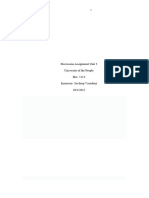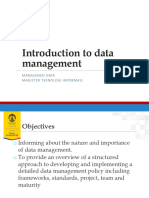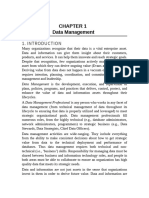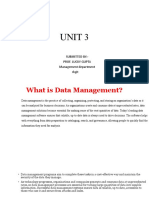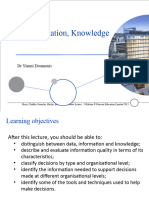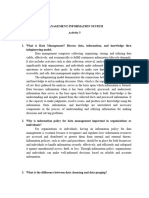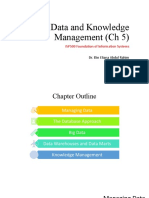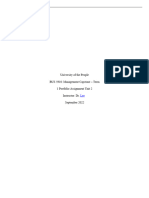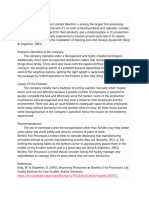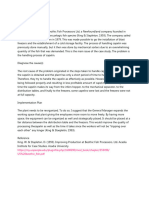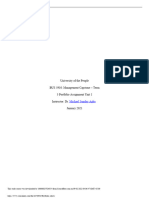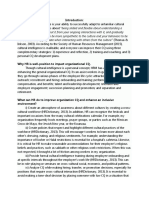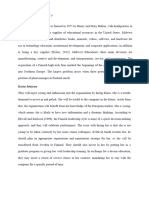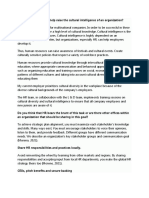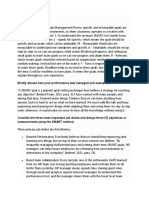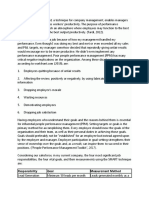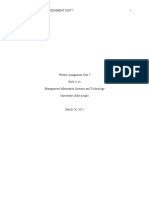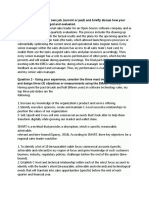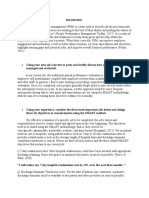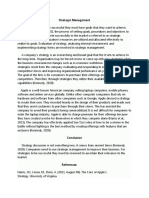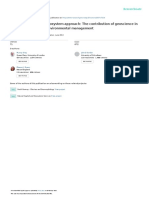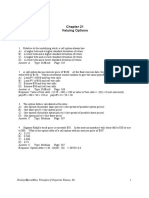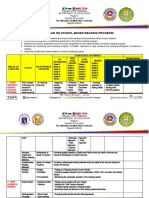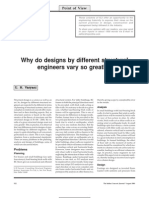0% found this document useful (0 votes)
72 views2 pagesBus 5114 Discussion Assignment 01 - 09
Data refers to raw facts without context, information provides data with meaning by organizing it into context, and knowledge represents timely information about a subject. Organizations operate in a knowledge economy and need contextual data and information to make relevant decisions and gain competitive advantages.
Data management involves gathering, storing, and using data securely and cost-effectively to enable optimized data use within legal and policy limits, allowing organizations to make decisions that maximize benefits. Companies like Coca-Cola and Netflix utilize extensive data management strategies to identify consumer trends and personalize experiences, enhancing earnings. Robust data management systems are critical for organizations to utilize data and information for decision-making and competitive advantages.
Uploaded by
Sheu BasharuCopyright
© © All Rights Reserved
We take content rights seriously. If you suspect this is your content, claim it here.
Available Formats
Download as DOCX, PDF, TXT or read online on Scribd
0% found this document useful (0 votes)
72 views2 pagesBus 5114 Discussion Assignment 01 - 09
Data refers to raw facts without context, information provides data with meaning by organizing it into context, and knowledge represents timely information about a subject. Organizations operate in a knowledge economy and need contextual data and information to make relevant decisions and gain competitive advantages.
Data management involves gathering, storing, and using data securely and cost-effectively to enable optimized data use within legal and policy limits, allowing organizations to make decisions that maximize benefits. Companies like Coca-Cola and Netflix utilize extensive data management strategies to identify consumer trends and personalize experiences, enhancing earnings. Robust data management systems are critical for organizations to utilize data and information for decision-making and competitive advantages.
Uploaded by
Sheu BasharuCopyright
© © All Rights Reserved
We take content rights seriously. If you suspect this is your content, claim it here.
Available Formats
Download as DOCX, PDF, TXT or read online on Scribd
/ 2





